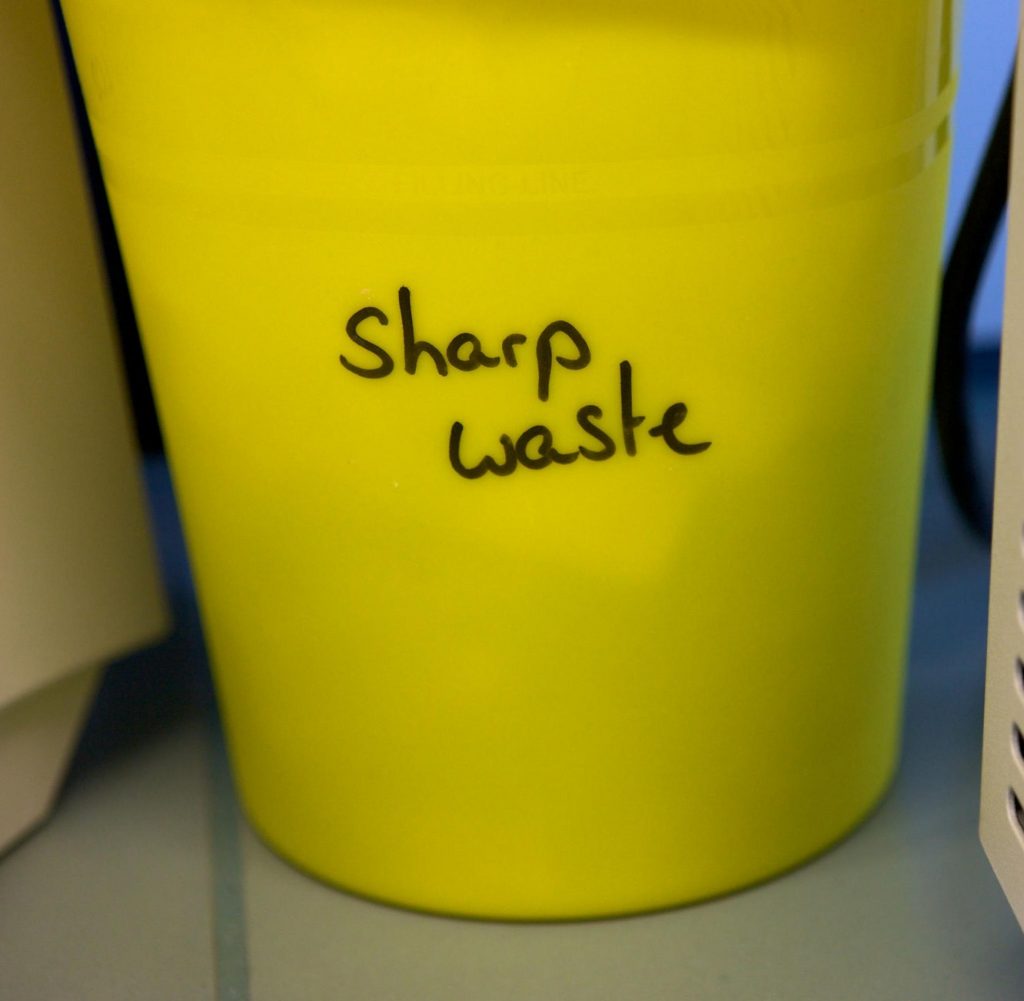The University of Freiburg stopped using disposable canisters for hazardous waste around 30 years ago. Switching to a more sustainable reusable system has saved the University money – and reduced its carbon footprint. Freiburg was one of the first universities in Germany to optimize its disposal route for hazardous waste. In doing so, it made it clear at an early stage how firmly fixed sustainability and environmental protection are in its institutional identity.
The University of Freiburg produces an annual amount of 70 to 80 metric tons of hazardous waste, including corrosive, toxic, and flammable substances. The majority comes from the natural sciences institutes and is disposed of by the Department of Environment and Sustainability. The department also takes on this task for external clients such as the Freiburg University Medical Center, increasing the total amount of hazardous waste to be disposed of to up to 110 metric tons per year. The University adopted a reusable system in the early 1990s to reduce carbon emissions, conserve valuable resources, and save money. It thus avoids incinerating plastic canisters along with their residual contents. The principle is that the faculties and external customers collect liquid waste in canisters with a capacity of five or ten litres. The full canisters are handed over to the Department of Environment and Sustainability, whose team decants the liquids into large steel or plastic containers and then returns the canisters empty of residue. The team empties around 14,000 canisters per year. The canisters can remain in circulation for several years depending on their condition and durability, or a maximum of five years in the case of hazardous goods shipments. When the large containers with a capacity of 800 to 1000 litres are full, a specialist company picks them up, disposes of the waste, and brings them back. The reusable system offers clear advantages, says Dr. Sabrina Oppermann, head of the Department of Environment and Sustainability: ‘By eliminating single-use plastic, which is carbon-intensive both in production and in combustion, the University of Freiburg succeeded in saving 78 metric tons1 of the climate-damaging greenhouse gas in 2020, and even 91 metric tons in 2017,2 and in reducing its carbon footprint accordingly.’ Moreover, this system does not require a large storage area for the canisters, and the fact that it is not always necessary to purchase new canisters at a price of around three euros each also makes a financial difference.

